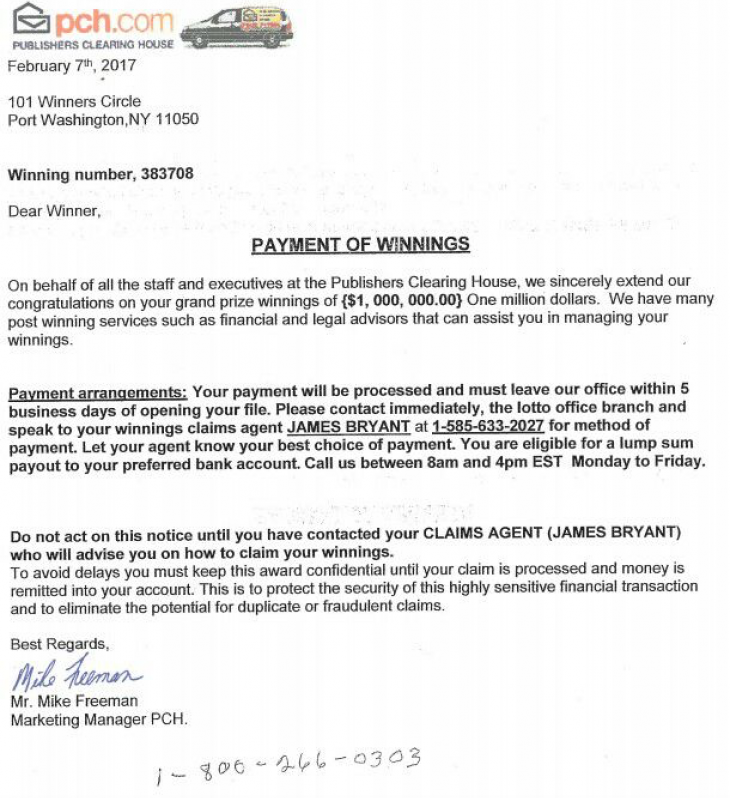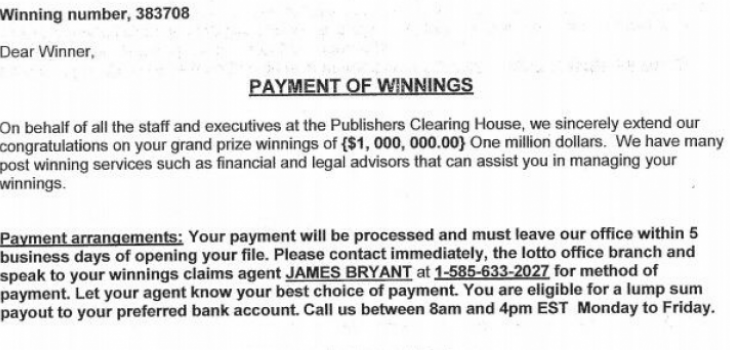The Cumberland Police Department posted to their Facebook page today a picture of a Publisher's Clearing House letter (below). The Cumberland Police Department says this is a scam and advises the community to be careful not to fall for this and to never give out any personal information.

The AARP also has some advice from their story last month titled "Don’t Lose in ‘Winning’ Publishers Clearing House Prizes."
- If you didn’t enter, you didn’t win. Period.
- If you entered and actually win a big PCH prize, a Prize Patrol van will contact you in person, complete with oversized check and camera crew. For smaller prizes — usually less than $1,000 — winners are notified by overnight delivery services, certified mail or email, reports the company. Don’t believe “you won” phone calls, text messages, Facebook notifications, emails (for major prizes) or “regular” USPS-delivered letters; PCH and most other contests don’t notify bona fide winners these ways.
- If asked to contact a “claims agent” — with or without an accompanying (fake) check — know the call-back number is to a scammer. If the scammer smooth-talks you into paying the initial requested amount, expect to be bombarded with seemingly endless phone calls and letters alleging new, “unexpected” fees until you’re bled dry. Be especially wary of area codes 284, 809 or 876; those are for Caribbean islands known for calling scams that also run up your phone bill and target you for future scams (in addition to asking for prize advance fees).
- If asked for details of financial accounts under the lie of “crediting” an account with your winnings, realize that’s another scam. Crooks can drain your bank account or go on a spending spree with your credit card. And don’t give your Social Security numbers to strangers who claim you won anything; it’s identity thieves who are asking.
- Don’t let age hurt you. The Federal Trade Commission reports that proclaimed “winners” ages 55 to 64 are twice as likely to fall for sweepstakes scams compared to younger Americans, and those 65 and older have almost triple the “gotcha” rate.
Last Update: Feb 15, 2017 11:36 am CST
















